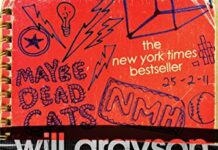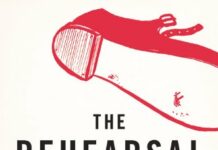
Ebook Info
- Published:
- Number of pages:
- Format: Epub
- File Size: 0.50 MB
- Authors: Gail Steketee
Description
A New York Times BestsellerAcclaimed psychologists Randy Frost and Gail Sketetee’s groundbreaking study on the compulsion of hoarding, “Stuff invites readers to reevaluate their desire for things” (Boston Globe).What possesses someone to save every scrap of paper that’s ever come into his home? What compulsions drive a woman like Irene, whose hoarding cost her her marriage? Or Ralph, whose imagined uses for castoff items like leaky old buckets almost lost him his house? Or Jerry and Alvin, wealthy twin bachelors who filled up matching luxury apartments with countless pieces of fine art, not even leaving themselves room to sleep?When Frost and Steketee became the first scientists to study hoarding, they expected to find a few sufferers. Instead, they uncovered an epidemic, treating hundreds of patients and fielding thousands of calls from the families of others, exploring the compulsion through a series of compelling case studies in the vein of Oliver Sacks. With vivid portraits that show us the traits by which you can identify a hoarder—piles on sofas and beds that make the furniture useless, houses that can be navigated only by following small paths called goat trails, vast piles of paper that the hoarders “churn” but never discard, even collections of animals and garbage—Frost and Steketee explain the causes and outline the often ineffective treatments for the disorder.They also illuminate the pull that possessions exert on all of us. Whether we’re savers, collectors, or compulsive cleaners, none of us is free of the impulses that drive hoarders to the extremes in which they live. For the six million sufferers, their relatives and friends, and all the rest of us with complicated relationships to our things, Stuff answers the question of what happens when our stuff starts to own us.
User’s Reviews
Reviews from Amazon users which were colected at the time this book was published on the website:
⭐I have read or have on a shelf most of the books by other writers listed by this author. When my loving, helpful son mentioned this book as a resource for me, I was not even hopeful that it would be any more beneficial than the others have been in changing my attitude or behavior regarding my hoarding. But it has. Maybe I am just ready. Maybe the case histories paralleled my own more closely than others have previously. The reason why is not important, but the glimmer of hope is. Immensely so.My entire extended family just returned from a lengthy vacation together where a good time was had by all. The place where we stayed was palatial. I was able to leave in the trash there things I had bought for traveling that I probably would not use again, and clothes that had seen their better days. And donated new things I had not used to the cleaners. I did not overload myself with souvenirs.When I returned to my hoarded home, the stuff I have accumulated over decades was not welcoming. It was as if the scales had been removed from my eyes and I was offended by the lack of order. I’m still jet-lagged but I have started my quest to freedom by tossing a few things and setting aside things I no longer treasure to donate. For the first time in forever I think I can, just like the little engine that could. I am grateful for this book at this time in my life. Now the work begins..
⭐”For a surprising number of people the attachments they form to the things in their lives interfere with their ability to live.”I started reading this because I worry about my own collection of stuff, but viewing the case histories here, I am somewhat relieved personally that my stuff, is far more manageable than these.”In many ways, hoarding looks like an impulse control disorder (ICD). ICDs are characterized by the inability to resist an urge or impulse.” Hoarders it would seem have an inability to decide what to chuck out. Like an Oliver Sacks book, Randy O Frost and Gail Steketee, look at different case histories to show different types of hoarder and different underlying problems. When Randy Frost started looking into what he terms as “hoarding syndrome” he was surprised as to just how many hoarders there were. The book starts with the famous case of the Collyer brothers, who lived in New York in the early 20th century and obsessively collected books and papers and musical instruments, filling their Harlem Brownstone. In March 1947, both were found dead in their home surrounded by over 140 tons of collected items that they had amassed over several decades.The researchers of the book identified various habits of hoarders: “We have seen this process so often among people who hoard that we have come to call it “churning.” This process involves hoarders going through their accumulated papers and stuff but not actually selecting anything to throw out. In many cases hoarding is not about the objects themselves but about ownership. Some hoarders were traumatized in childhood, when parent through their precious stuff out. The difference between people who hoard and those who don’t is in the volume and variety of things they view as “useful.” They have lots of junk, which they feel maybe useful some day. Dante reserved the fourth circle of hell for “hoarders” and “wasters” in his Inferno. Some hoarders have “oniomania.” From the Greek onios, meaning “for sale,” oniomania is a pathological and uncontrollable impulse to buy. They may have several items still in the original packaging, they are interested in the buying and possessing but not so much the actual using of the item bought. I still have a lot of Hot Wheels cars in their original packaging, this makes them more valuable if I sell them on, but as yet I haven’t done that.Clearing out a hoard can be very stressful for a hoarder the researchers tell us,”We know of several cases in which hoarders have committed suicide following a forced cleanout.”Hoarders associate their stuff as an extension of themselves. Getting rid of the things meant losing the dreams.&”For those lacking insight into their hoarding, heavy-duty cleanings are seldom more than a short-term fix.”The best course of action seems to be for a team of friends and family to patiently work with the hoarder to reduce their piles of stuff. Many hoarders are blind to the clutter in their lives, some feel safe and cocooned amidst their stuff.The best way to make the distinction between hoarding and normal collecting is to determine whether the behavior creates a problem for the family. For most of us, a certain degree of disorganization is not harmful and can help us be creative.This is a fascinating insight into the psychology of hoarding.
⭐”Stuff” is a very thorough and compassionate look into a world most of us simply can’t understand at all. I picked this book up because there are hoarder-ish people in both my and my husband’s families, and I wanted to understand them better. They aren’t stupid, yet somehow they are blind to the awful situations they put themselves into — why? What makes an intelligent, often insightful person look at a crumpled bread bag from 2009 and freak out at the thought of discarding such a treasure? Frost has gone where most fear to tread, and found tremendous humanity in these often-despised hoarders. Far from dismissing them as “crazy,” Frost looks to understand their pain and their internal logic, and finds that hoarders are much like “normal” people, only with certain personality traits dialed up way beyond “11.” It’s startling to see how much almost everyone has in common with hoarders, and it made me rethink my own (non-disordered) relationship with “stuff.”If you’re looking for a freakshow like you’d see on the TV show “Hoarders,” well, there’s a bit of that here — but tempered with a lot of thinking, sincere asking of questions, and even philosophy about man’s relationship with the world.
⭐Hoarding has always been a curiosity to me as I tend to be the opposite , someone who throws out things and later says “I probably could have used that”. However, it’s never been a big deal. This book took me into the more intimate lives of hoarders and laid bare the pain and confusion that many of them share as well as their uncanny ability to deny their plight in some cases. My heart and understanding go out to these troubled individuals and their families. I can’t help but wonder how many hoarders will be “born” in this crazy, traumatic time of COVID-19. Maybe we all should be aware of how we handle the stress of our isolation and keep an eye out for OCD and hoarding behaviors that might be creeping into our lives at this time. We might find that there is a thin line between “us” and “them.”
⭐What an interesting read on the why people hoard stuff. The stories of the people in the book, give you understanding on why ourselves keep hold of things. Either that it has no use other than the guilt factor of it being a gift, it maybe useful or it holds a memory. A good read for anyone who is down sizing or going minimalist
⭐The authors’ use of case studies and the subjects’ reasoning behind their hoarding made for interesting and at times upsetting reading. I would recommend it because the authors met people who had come to the realisation that their hoarding was causing them problems as well as those who could see no problem with what they were doing, even when it led to them being barred from their homes. They wrote about the people interviewed without ridiculing them or making excuses for a problem which was affecting more than their wallets (spouses divorcing them because of the hoarding, local authorities issuing legal proceedings for cleanups etc).
⭐Excellent guide to the problem of hoarding through a series of real life case studies. The author takes a sympathetic and understanding look at the problems faced by hoarders and their families. Written in an easy to read style professionals and academics will also find this book interesting and useful.
⭐More for the therapist than the perpetrator, but good nonetheless.
⭐Brilliant book if you truly understand the disorder
Keywords
Free Download Stuff: Compulsive Hoarding and the Meaning of Things in Epub format
Stuff: Compulsive Hoarding and the Meaning of Things Epub Free Download
Download Stuff: Compulsive Hoarding and the Meaning of Things Epub Free
Stuff: Compulsive Hoarding and the Meaning of Things Epub Free Download
Download Stuff: Compulsive Hoarding and the Meaning of Things Epub
Free Download Ebook Stuff: Compulsive Hoarding and the Meaning of Things





